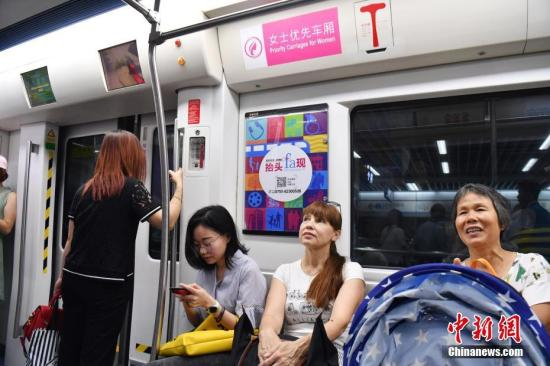Regulation to help people in need take the subway a welcome move
 |
|
A female-priority subway car in Shenzhen. [Photo/Chinanews.com] |
The introduction of priority subway carriages for people in need in Shenzhen, South China's Guangdong province, is a positive move that should be promoted nationwide. China Daily writer Wang Yiqing comments:
The revised draft of Shenzhen Special Economic Zone Civilized Behavior Promotion Ordinance, which was opened recently to solicit public opinions, says the city's subway will introduce priority carriages for people in need such as the disabled, minors and women during rush hour.
And, if need be, the subway staff members should ask ordinary passengers to leave such carriages.
Shenzhen's ordinance on civilized behavior came into effect in 2013-the first such regulation in China. Its aim is to provide better care for people in need and help them avail of public services without much difficulty.
In 2017, Shenzhen subway introduced priority carriages for women. The huge passenger flow in subways during rush hour makes it difficult for women in general, and pregnant women in particular, to take the subway.
But since "ladies first" was only a recommendation, not a regulation, many men ignored it and rushed into the priority carriages.
The revised draft makes positive changes by emphasizing that priority carriages are for "people in need" including the disabled and minors, rather than only for women. Such regulations should be introduced nationwide.
But the new regulation, too, faces the problem of enforceability. It is not rare to see healthy and strong men occupying the priority seats on subway trains or in buses and refusing to leave even when a disabled person or senior citizen rightly asks them to.
Sure, the draft regulation says subway staff members should ask ordinary passengers to leave the priority carriages, but it doesn't clarify whether they have the authority to forcibly evict an ordinary passenger from a priority carriage.
Therefore, the draft should be improved for the better implementation of this well-intentioned policy.



 Print
Print Mail
Mail

